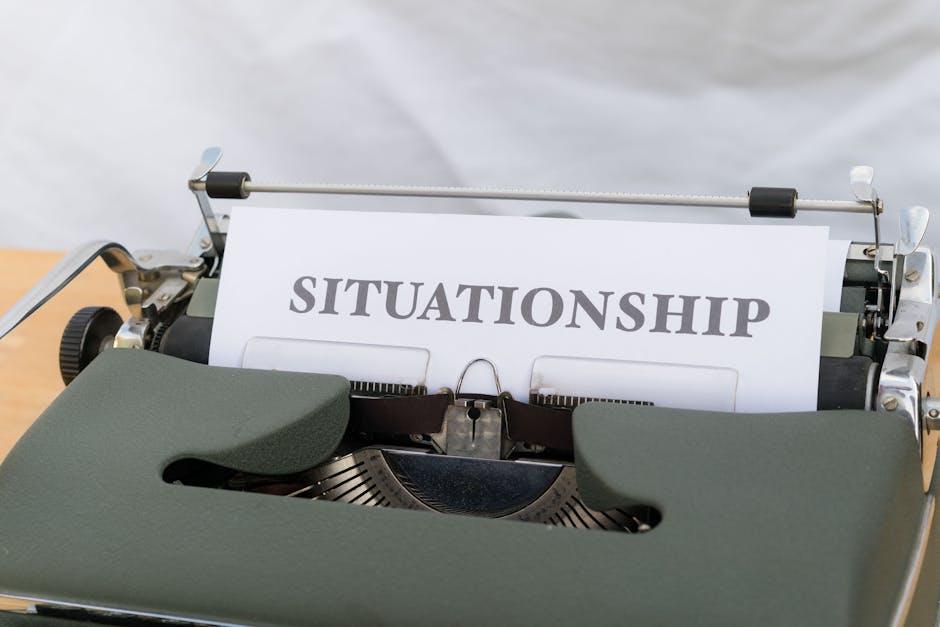In the exhilarating world of new relationships, every encounter is a blend of curiosity and anticipation, where every word and gesture feels like a clue to unraveling the mystery of a potential partner. However, amid the excitement and butterflies, it is crucial to remain vigilant for the subtle signs that may indicate deeper issues lurking beneath the surface. Just as a sailor reads the sky for signs of an impending storm, those venturing into the sea of romance should be attuned to the red flags that could signal turbulence ahead. This article delves into the essential warning signs to be mindful of when dating someone new, offering guidance to navigate the delicate balance between heart and intuition.
Spotting Inconsistencies in Their Stories
When you’re getting to know someone new, it’s important to pay attention to the details of their stories. Inconsistencies can often serve as a subtle yet significant indicator that something isn’t quite right. While everyone can have a lapse in memory, a pattern of conflicting narratives should not be ignored. Here are some signs to look out for:
- Timeline Mix-ups: If the timeline of events in their stories keeps shifting, it might be a sign that they are not being entirely truthful.
- Changing Details: Pay attention if the small details of their stories frequently change. This could be a sign of embellishment or fabrication.
- Vague Explanations: If they often give vague or evasive answers when you ask for clarification, it might be a red flag.
- Forgetfulness: While forgetting minor details is normal, consistently forgetting significant parts of their stories could indicate dishonesty.
Being aware of these inconsistencies can help you better understand the person you’re dating and make more informed decisions about your relationship. Trust your instincts and don’t hesitate to ask questions if something feels off.
Recognizing Signs of Controlling Behavior
In the early stages of a relationship, it can be difficult to distinguish between genuine concern and subtle control. One of the most telling indicators is an overwhelming need for frequent updates on your whereabouts and activities. While checking in is a normal part of any relationship, if your partner insists on knowing every detail of your day, it might be a sign of something more concerning. Additionally, pay attention to how they react to your independence; do they become agitated when you spend time with friends or pursue hobbies without them?
- Isolation Tactics: They might subtly discourage you from seeing family and friends, often under the guise of wanting to spend more quality time together.
- Emotional Manipulation: Look out for frequent guilt trips or emotional outbursts that are aimed at making you feel responsible for their happiness.
- Decision-Making Control: They may try to make decisions for you or belittle your choices, often suggesting that they know what’s best.
These behaviors can gradually erode your confidence and autonomy. Recognizing them early on is crucial in ensuring a healthy and balanced relationship. Remember, a partnership should empower both individuals, allowing them to thrive independently and together.

Identifying Patterns of Emotional Unavailability
When diving into a new relationship, it’s crucial to recognize signs that someone might not be ready to open their heart. Emotional unavailability can manifest in various subtle ways, often leaving you feeling like you’re investing in a one-sided connection. One telltale sign is a lack of communication about feelings and future plans. If your partner consistently dodges discussions about emotional topics or avoids making long-term plans, it could indicate a reluctance to fully engage.
- Inconsistent behavior: Notice if their actions don’t match their words. Frequent cancellations or last-minute changes might suggest a lack of commitment.
- Overemphasis on physical intimacy: If the relationship feels primarily physical without emotional depth, it may be a red flag.
- Limited sharing of personal experiences: A partner who keeps conversations superficial and avoids discussing past relationships or personal struggles may be shielding themselves from vulnerability.
- Reluctance to define the relationship: If discussions about the relationship’s status are met with ambiguity or avoidance, it might be a sign of emotional distance.
Understanding these patterns can help you assess whether your budding relationship is built on mutual openness or if it’s time to reconsider your emotional investment.

Understanding the Importance of Respectful Communication
When exploring the early stages of a relationship, it’s crucial to observe how your partner communicates, as this can reveal a lot about their character and the potential dynamics of your relationship. Respectful communication is foundational to any healthy connection, allowing both parties to feel heard, valued, and understood. A partner who listens actively and responds thoughtfully demonstrates a genuine interest in your thoughts and feelings.
Watch for these red flags that might indicate a lack of respect in communication:
- Interruptions: Constantly cutting you off mid-sentence suggests a lack of interest in your perspective.
- Dismissive language: Using phrases like “You’re overreacting” or “It’s not a big deal” can undermine your emotions and experiences.
- Inconsistent communication: If they frequently cancel plans or fail to respond to messages, it might signal a lack of consideration.
- Aggressive tones: Notice if they resort to shouting or harsh words, as these are signs of poor conflict resolution skills.
Identifying these signs early can help you decide whether to invest further in the relationship or reevaluate your choices.








